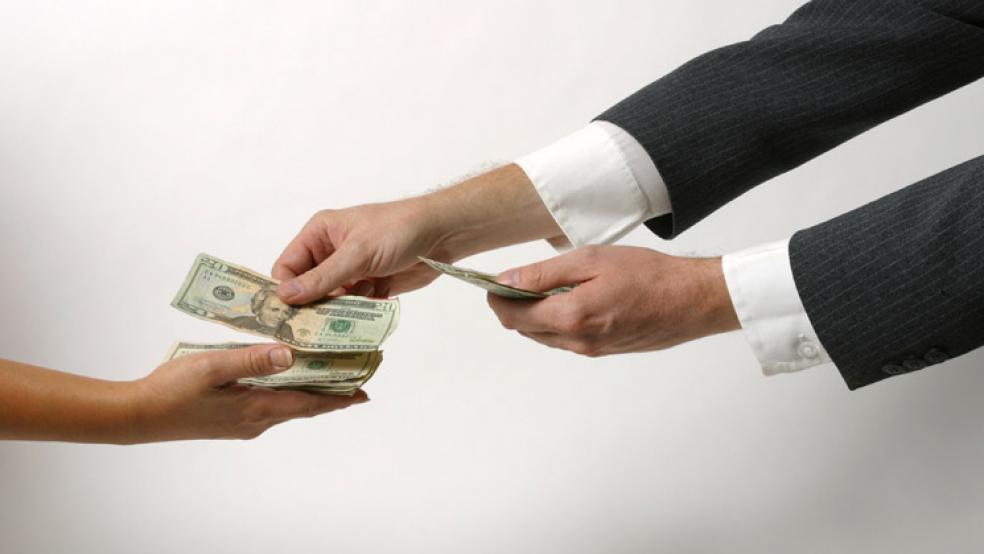Desperate for a few hundred dollars to tide them over until payday, many Americans resort to cash or check advances—also known as payday loans.
But the vast majority of these short-term advances are not paid off within two weeks, and in fact are rolled over or followed by another loan, according to the Consumer Financial Protection Bureau. Plus, few borrowers lower principal amounts between loans. The upshot can be a vicious, downward cycle into deeper debt.
Related: Porn, Pot and Payday Lenders Are Unwelcome at Banks
Just ask Katrina Gilbert.
The 31-year-old single mother of three recently took out a $300 payday loan to make the rent in Tennessee. It took her weeks to pay off the advance that ultimately cost her double the initial loan amount. Gilbert shared her experience—and those of other working poor Americans—to a standing ovation at the United Nations in New York this week. The growing problem of America's unbanked and underbanked was part of a summit at the UN on seeking solutions to broad economic and environmental challenges.
"We're doing the best we can," Gilbert said. "We too deserve a better shot at the future."
Aimed at individuals like Gilbert, JPMorgan Chase on Thursday unveiled a $30 million, five year commitment to establish a "Financial Solutions Lab."
"It's too expensive to be poor in America, and it's getting worse," said Noah Wintroub, managing director of Internet and digital media for JPMorgan Chase. Financial lab advisors will include IDEO.org, which works with nonprofits and other social enterprises.
Related: Predatory Lenders Hook Consumers in Debt Traps
Of course, reaching out to America's working poor doesn't hurt a banking giant's corporate image. But the bank says the lab is about seeking new financial options. "We offer a variety of programs, products and services to help our customers better manage their finances, and the Financial Solutions Lab is the latest example," said Nicole Kennedy, a spokeswoman for JPMorgan Chase.
And innovative financial solutions would be welcome among payday loan users. Monthly borrowers are disproportionately apt to stay in debt for 11 months or longer, according to the finance bureau's research.
"We're not asking for a handout," said Gilbert, who was featured in the documentary, "Paycheck to Paycheck."
Gilbert added a living wage wouldn't hurt either. "We should certainly raise the minimum wage," she said.
This article originally appeared in CNBC.
Read more at CNBC:
What Apple will (probably) reveal today
Diehard director battling foreclosure
Snowden: Here's why I'm in Russia




